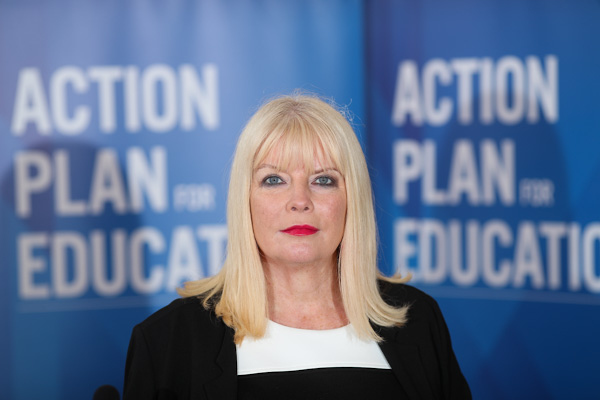The government is investing nearly €100 million in five third-level institutes in order to fund 14,000 new student places in higher education.
The investment, part of the government’s Project Ireland 2040 strategy, was announced today, and will see IT Sligo, Maynooth University, University College Cork, NUI Galway and University College Dublin awarded funding.
Minister for Education Joe McHugh and Minister for Higher Education Mary Mitchell O’Connor today announced the investment as part of a total of €2.2 billion in additional funding for third-level education over the next five years.
In a press statement, McHugh said the funding “will have a major positive impact on the sector’s ability to cater for significant increases in enrolments over the coming decade”.
“We are planning and investing for the future and with that we are driving choice and increasing options for students around the country”, he said.
Between 2017 and 2030, the number of full-time students enrolled in higher education is projected to increase by more than 38,000 to a total of more than 222,000.
In a press statement, Mitchell O’Connor said: “Today’s significant announcement complements other capital investments in the sector, including the Higher Education Public Private Partnership (PPP) Programme and the development of the TU Dublin City Campus at Grangegorman.”
“The projects that have been approved in principle for funding will significantly advance the objectives of Project Ireland 2040, including in underpinning the talent pipeline that is essential to Ireland’s growth as an economy and society, and in supporting regional objectives”, she said.
“The buildings themselves will be highly innovative and sustainable, future-proofed to support the most up-to-date approaches to teaching and learning, and designed to facilitate the multi-disciplinary engagement that is so critical to tackling the challenges of today and of the future.”
IT Sligo plans to develop a new four-storey extension to a central building on its main campus. It is hoped that the extension will allow the college to cater for 2,400 additional students.
Maynooth intends to build over 10,000 square metres of new buildings, as well as refurbishing existing space on campus. The project seeks to bring together and integrate the disciplines of business, law and social science with science, engineering and technology.
UCC plans to invest in a new building for its business school.
NUIG intends to use the funding to regenerate the existing campus library into a new learning commons, with the capacity for up to 2,000 additional students.
UCD plans to create 22,500 square metres of teaching, learning, research and engagement space. It is hoped the investment will cater to 3,300 new students.
All five of the institutions will have to source additional funding to meet the projected cost of their respective plans.
“Ambition is at the heart of these plans”, McHugh said. “These projects and new buildings will have an important regional and national impact but they will also enhance the competitiveness of Ireland’s higher education system on the international stage.”
He added: “I am particularly pleased at the projected level of non-Exchequer investment alongside the Government investment. This collaborative approach is very much in the spirit of Project Ireland 2040, which recognises the importance of private finance in the delivery of infrastructure in the sector.”
Mitchell O’Connor added: “Private finance played a critical role in the development of our university campuses during a time of particular difficulty for the public finances. This ‘co-funding approach responds to calls from the sector for a greater level of State support while recognising the continued importance of leveraging other sources of investment.”







